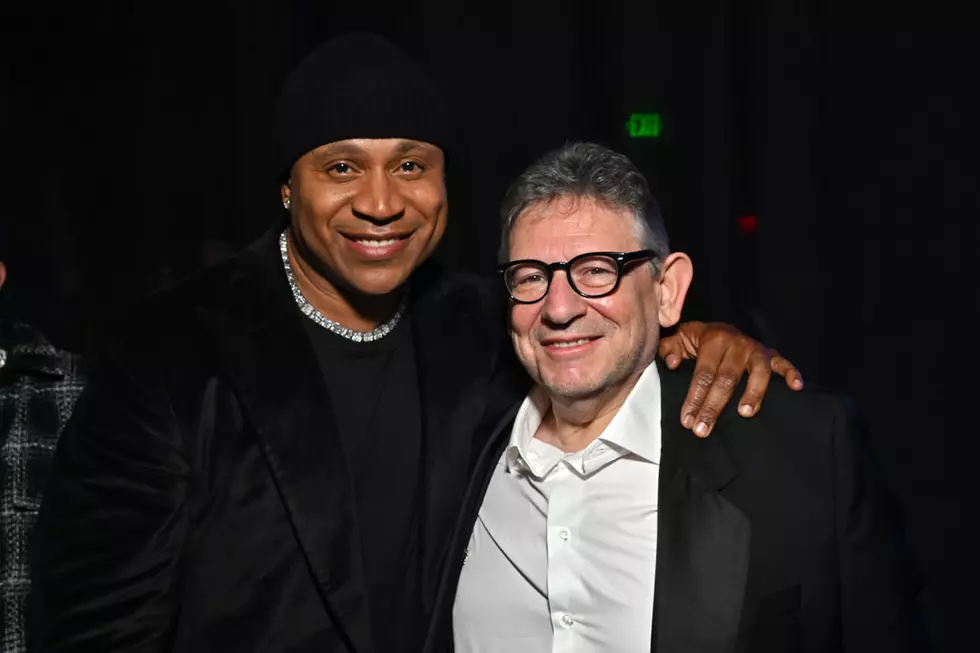
Can A U.S. Embassy-Sponsored Program Help Spread Hip-Hop In Iraq?
When the U.S.-based organization American Voices launched Iraq’s first hip-hop academy in 2007, the War in Iraq was raging into its fifth year, with record-low levels of support at home and record-high levels of violence on the ground. Fueled by a mission to “bring cross-cultural engagement to countries in transition,” American Voices has worked in 110 countries over the past 20 years. Its YES Academies (Youth Excellence On Stage) bring in professional U.S. faculty to train youth in hip-hop and other performing arts, and have spread throughout Asia and the Mid-East, including Iraq.
Ashley Bright, a spokeswoman for the organization, told XXL by phone that the U.S. Embassy in Baghdad partially funds the Academy that she describes as “a way to, on one hand, change the perception of the U.S. and American culture in that country. And on the other hand, to create an inroad for a different type of diplomacy, a cultural diplomacy, and give these young kids in these countries a chance to be exposed to something they would have never been exposed to otherwise.”
The Academy’s 2013 hip-hop dance crew, First Step Iraq, just wrapped up its first U.S. tour, with shows in New York, Philadelphia, D.C., Boston and Detroit. The six young men who make up the crew recently sat down with XXL at a New York studio where they were rehearsing with two of the Academy’s trainers—internationally known performers James “Cricket” Colter and Michael Parks Masterson—to speak about the juxtaposition of New York’s vibrant hip-hop scene with what they describe as an active repression of hip-hop in Iraq. “When we were getting out of the Academy, we used to go back home, and there was no more hip-hop, no more dancing," said Shalaw Najmadin, 21, from the Kurdistan Region. "That’s the difference between New York and other places, and that’s why it’s so amazing, so inspiring. Everywhere you go there is dancing, hip-hop; there are classes everywhere.”
"If it's something that allows them to engage and possibly even gain a worldly citizenship that allows them to travel and develop a career, then that's beautiful, man," said The Narcicyst. "I think that it really is.”
Hussein Smko, 20, also of the Kurdistan Region, explained that many Iraqis’ introduction to hip-hop was from U.S. soldiers. "We were kids, running after members in patrol in midtown Erbil [the Kurdistan capital]," Smko said, describing a life-changing encounter in 2003. "It was maybe 20-25 kids standing, just looking—you know, it was our first time to see American people. They stopped, and one of the guys called me over. I still remember his face, because he was the reason why I started hip-hop... He was just doing the Wave. And I was like, ‘Oh my God, how did you do this? Bones don’t do that!’ And then without YouTube or anything, I just went home and practiced for two years, just on that. That’s why I started poppin’ at the first, until 2009, then I started to know about b-boy-ing. And I thank this soldier from the bottom of my heart, because he really showed me the life.”
While hip-hop continues to be very much a small, underground scene in Iraq itself, there are several established MCs who identify as Iraqi, most notably English rapper Lowkey and Canadian rapper The Narcicyst. On the phone with XXL last October, Narcy echoed the idea that there is almost no hip-hop coming out of Iraq itself. “It’s very strange," he said. "It’s the only country [where] I haven’t come across that many MCs that come straight out of there. I’ve heard more Iraqi MCs out of the diaspora. That's probably a reflection of—at least when we started making music—how the reactionary voice to the War came out of the West, whereas the musical voice from Iraq came after the War, a couple years after.”
Naz Haze, an up-and-coming young rapper out of London who was born in Iraq and is being mentored by Lowkey, agreed that at this stage, Iraqi hip-hop is less a creation of artists living inside Iraq and more guided by artists from Iraqi families who left the country. “Hip-hop is not respected in Arab culture," he said in a Skype interview. "It’s very misunderstood. The way it’s presented in that culture, in the Middle Eastern culture...anything that doesn’t come from within that area is weird, it’s strange. It’s gonna be criticized, regardless of where it is. There’s no hip-hop channel on the satellite on Arabic TVs."
But there seems to be huge variance in hip-hop saturation and acceptance throughout the Middle East. Haider Fadell, a 22-year-old YES Academy participant, said that when his family moved from Baghdad to Dubai, they were very supportive of his and his brother Ali’s passion for hip-hop. But when they moved back to Baghdad, the family tried hard to convince the brothers to stop training. "There was some group [in Iraq] that started to kill dancers, or someone with long hair, or someone who spoke English, translating for the U.S. Embassy or something like that," he said. "They started to spread our names like we are wanted or something. So my family said that I should stop, that I should never be dancing again. But I just couldn’t. We had a lot of troubles there because of that.”
The dancers spoke at length about how grateful they are for the hip-hop exposure they’ve received from the Academy, and the artistic enthusiasm the training has nurtured in them is undeniable. But given the long history of U.S. aggression against Iraq, it is at least an interesting dynamic that the program is financially backed by the U.S. Embassy in Baghdad with a mission of communicating “the best of what America is as a nation to the rest of the world.”
Stressing that he doesn’t know enough about the program to give a personal opinion, Naz Haze’s first reaction to hearing a description of Iraq’s YES Academy was, “We don’t even get opportunities like that in the U.K.” He went on to say, “In a way, if I’m a person who lives inside Iraq and has never been outside Iraq, I might be like, ‘This is straight colonialism. You’re bringing your stuff, you want us to do your stuff and be like you guys.'"
"Is it more powerful to only speak to the crowd that knows what's going on, in a certain language, or a certain rhetoric? Or is it better to present our human lives as intricate as they are, and as traveled as they are, and use that attention to directly touch people?”
"I always am interested in who's funding organizations and initiatives like this," The Narcicyst said. "That's the first thing I always look at. And if it involves any sort of political organization that has a certain point of view that I don't agree with, then I would definitely not agree with it. But for face value, it seems to be valuable as an experience. If it's something that allows them to engage and possibly even gain a worldly citizenship that allows them to travel and develop a career, then that's beautiful, man. I think that it really is.”
By any account, the American Voices program seems to form a significant piece of a budding hip-hop scene inside Iraq. Some participants have gone on to create their own hip-hop classes, and while the program ultimately accepted six participants this year, over 50 young men auditioned. Masterson and Colter said they often have to close their hip-hop rehearsals in Erbil because "the whole city just wants to come watch."
While rappers from the Iraqi diaspora certainly enjoy more exposure than the few inside Iraq, Narcy and Naz Haze both stressed how frustrating it can be to feel pigeonholed artistically—as Iraqi rappers, Arab rappers, political rappers, reactionaries. For Haze at least, the politics and culture of Iraq are really minor themes in his work. “You can hear it in the lyrics sometimes, every now and then I would drop something cultural," he said. "But it wouldn’t sound in a way like, ‘Oh yeah, I’m from a country where there’s palm trees and shit.’ I tried to do it in a way where it’s like, subliminal, but if you keep your ear to it, you can understand what I’m speaking about."
The Narcicyst, who has produced deeply political pieces—like 2009’s “P.H.A.T.W.A. (Alphabet Boys)”—reflected on his shifting thoughts about political music. “Now some of us are in our late twenties or early thirties, and we're thinking about life," he said. "And with these Revolutions that have been happening, it really makes you question what's more powerful. Is it more powerful to only speak to the crowd that knows what's going on, in a certain language, or a certain rhetoric? Or is it better to present our human lives as intricate as they are, and as traveled as they are, and use that attention to directly touch people? Whether it be to help some little kid, involve artists from all over the Middle East, to create a more artistic cultural scene than a political one.”
Naz Haze has his doubts about the immediate growth of Arabic hip-hop on the whole. “It wouldn’t be a big genre in Arabic music," he said. "People aren’t ready for it; people aren’t ready to open their minds. Especially when you’re talking about the state of the Arabic world right now, where everybody’s just rebelling and everybody’s having a revolution, or whatever you want to call it. It’s not the right state. The people are not sitting at their houses watching TV thinking, ‘Oh, we want to hear some new music.’ People’s houses are being destroyed, people are dying. To some extent, music as a whole—not just Arabic hip-hop—is irrelevant right now.”
As for the YES Academy in Iraq, Bright says the organization plans to continue its hip-hop program, and she believes it does indeed shift the view of the U.S. among participants. “I think that for these young kids, maybe they’ve only ever had a certain perception of America, and I think that having these teachers and trainers come and work with them, and help them find something that they’re passionate about and their art, I think it does change their perception," she says. "Some of the guys in the hip-hop group are from Baghdad, and some of them are from the Kurdistan Region, and these guys never would have known each other, been friends, been working together if it weren’t for the YES Academy. So I think it’s also crossing a lot of cultural bridges within the country itself.”
Artists from the Iraqi diaspora are continually navigating their own cultural bridges. “My story in particular—one side of it is being Iraqi and being part of a generation of Iraqis that had the fortunate ability to leave before the Wars. And I grew up in a place like Canada,” The Narcicyst said. “These two elements of my upbringing are what created my voice, and I can only share the influences of both sides and not say that I'm a representative of the monolith of what Iraq is. I haven't lived through direct war, so I don't know what that voice is. And I would love to be able to hear that voice in the format of hip-hop come out and be honest and affect the world.” —Katie Moore (@kmoorenyc)
More From XXL









